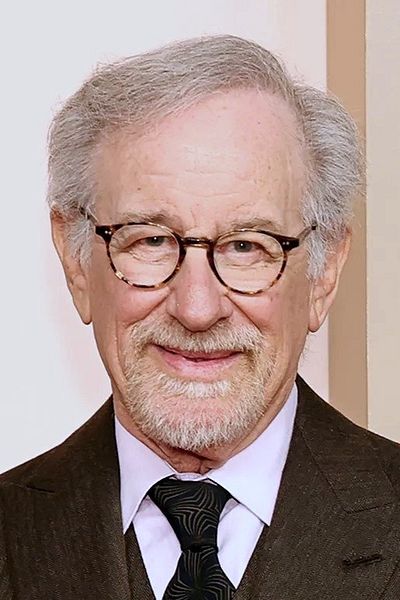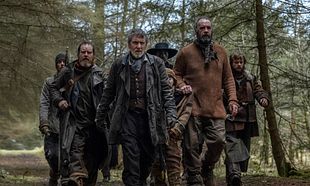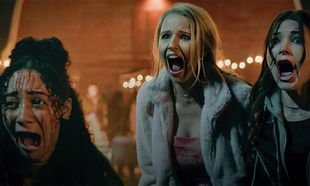Sammy Fabelman (Gabriel LaBelle) aspires to become a filmmaker. While his artistic and free-spirited mother (Michelle Williams) encourages his pursuits, his loving but emotionally distant father (Paul Dano) sees it as an unrealistic goal. Over the course of his adolescence, Sammy's passion for art and filmmaking grows, but so too does the distance between his parents, both from him and each other...
Steven Spielberg’s work has always been marked by flourishes of style and panache. Go all the way back to his earliest works like the episode of ‘Columbo’ that launched his career, ‘Murder By The Book’, and naturally ‘Jaws’, and you can see the spark and the instincts that have carved out his career. It’s not something he’s lost in the intervening years, but certainly, of late, there’s a sense that Spielberg’s prodigious output has blunted it somewhat. ‘Bridge of Spies’ was particularly forgettable, as were ‘War Horse’ and ‘The BFG’. Yet, ‘West Side Story’ had all of his panache and in ‘The Fabelmans’, we see the beating heart of his creativity.
Easily his most personal work to date - Gabriel DaSalle’s Sammy Fabelman is a thin cover for Spielberg - ‘The Fabelmans’ finds its way through separate movies that the young director takes on. The first is the outré spectacle of a disaster piece, cogging ‘The Greatest Show On Earth’ and setting up a train crash with a miniature toy set. The next is inspired by John Ford’s ‘The Searchers’, in which young Sammy Fabelman comes up with an ingenious method of making realistic gunshots by pecking holes in the film as it moved through the projector. Yet, between these, he is urged by his father - played with real restraint by Paul Dano - to edit together a family movie of a countryside trip with his mother, Michelle Williams, and the family friend Seth Rogen.
This is where ‘The Fabelmans’ finds its heart - not in a portrait of a young artist finding his way, but of a family slowly disintegrating and the ways in which we desperately cling to anything to keep afloat. Anyone who’s witnessed a family separation up close will see all too familiar scenes play out. The hushed crying, leaning against doors or air vents to eavesdrop on angry conversations, private admissions of anguish and doubt, and eventually, the very public and unavoidable collapse. There’s too much of the awkward and the painful in ‘The Fabelmans’ for it not to be real, and taken directly from Spielberg’s memories of his own family breakup.
Indeed, the way in which Gabriel DaSalle plays Sammy speaks to a deep understanding of how people deal with this kind of thing. They fling themselves into something, anything, rather than look directly at it and deal with it. More than that, DaSalle’s performance understands that when it happens at this age, they’re ultimately powerless to do anything about it. Like the train crash he puts together at the start, it’s inevitable. He’s just along for the ride.
Michelle Williams cartwheels between desperately maudlin and maniacally sweet, to a point where it’s distracting. Paul Dano, on the other hand, opts for quiet gestures and subtlety to get across the restrained, probably too restrained, father figure. Seth Rogen, meanwhile, is burdened with the task of being both the catalyst for their breakup and also a somewhat likeable aspect of it. It’s fascinating, really. Spielberg’s screenplay doesn’t judge Rogen’s character harshly for breaking up their family, because the distance of time leads him to understand that it was already faltering.
Spielberg directs ‘The Fabelmans’ with all of his assuredness intact, but filters in some key moments from his other work to inform its inspiration. His mother’s incessant cooking when upset is seen in ‘Munich’. The ever-present piano and the communication between mathematics and music come up in ‘Close Encounters of the Third Kind’. Spielberg’s love of John Ford is made clear in a terrific cameo from another directing wunderkind, not to mention ending the movie on a terrific flourish.
Compared to something like ‘Empire of Light’ or even Damien Chazelle’s ‘Babylon’, the mythic quality of movies feels earned in ‘The Fabelmans’. It’s a comfort to Sammy Fabelman, as it’s a comfort to anyone going through something like this, but we don’t see him tearing up in a cinema at the majesty of it all. Instead, we see a life path being laid out in front of him and a determination to forge ahead with it because he must go out into the world as his own person. The past cannot bring anything to him at this point, because the pain is too near. There’s a terrific scene with the great Judd Hirsch where he lays it all out - family and art will tear your heart out, but Sammy and Steven are bound to no other fate but this.
In the end, ‘The Fabelmans’ does not talk of art and movies as a healing thing, but rather that it’s a vocation because it’s formed you in a deep, personal way. Whether it’s working behind the camera or sitting in front of a screen and writing about it, you’re in this thing for life.



















































































